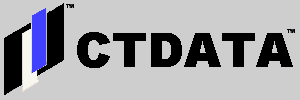A List Apart Shows What It Takes to Do a CSS Makeover on Slashdot
A List Apart has begun a two-part series called Retooling Slashdot with Web Standards. This is an attempt to redesign Slashdot to use Cascading Style Sheets. Not only is this an interesting exercise, but it illustrates the issues we touched on in the article CSS is to In-Line Markup as American Sign Language is to English, 10 days ago.
Much of the work discussed in the first part of the series consists of breaking down the components of a Slashdot index page into entities that can be modeled in <DIV> tags. Too bad the author didn't go into more of an explantion of what these tags represent.
We have a number of Slash-based sites, therefore, this article is very instructive to us. It would have helped with the design of Operation Gadget because it would have allowed us to see a page we recognized recast into CSS compliance.
This article is highly recommended for anyone who is writing HTML entirely with in-line markup today. It's also extremely useful to people who have spent a majority of their time running Slash-based sites.
